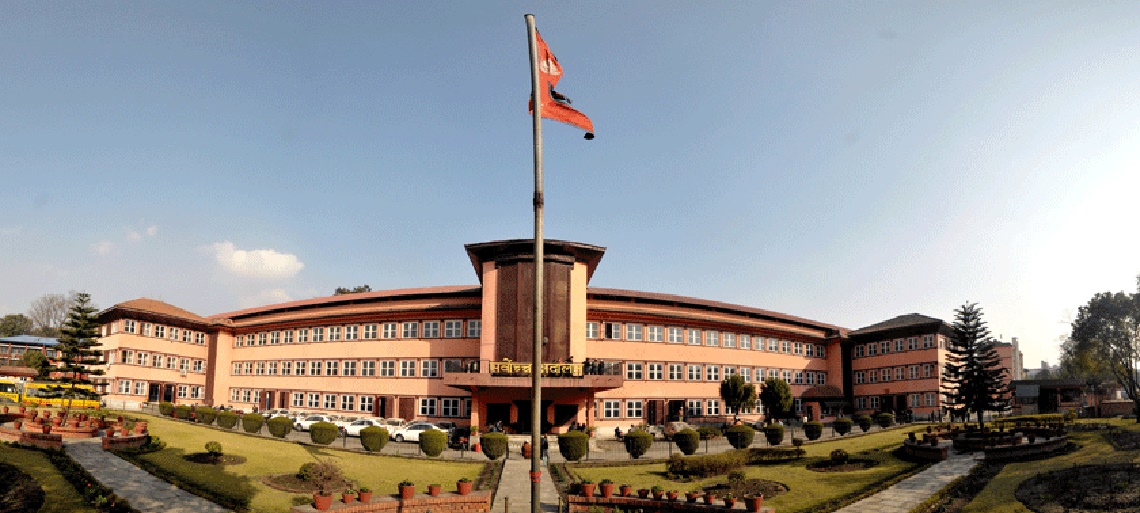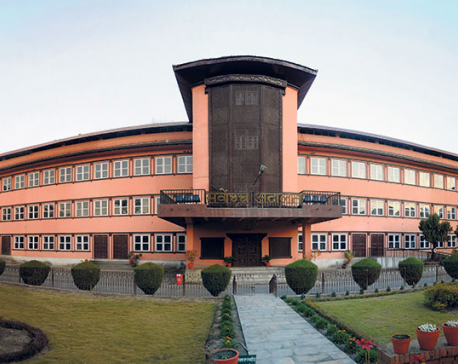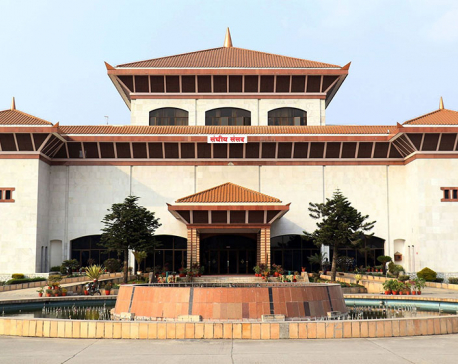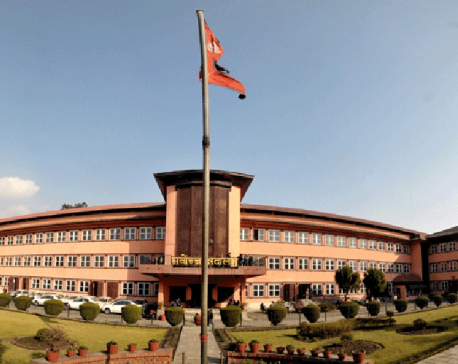
OR
Final judgments through stay order?
Published On: December 29, 2018 07:16 AM NPT By: Ananta Raj Luitel

KATHMANDU, Dec 29: With the issuing of few stay orders that are like final orders in relation to various cases, the Supreme Court has been facing controversy in the exercise of its extraordinary jurisdiction and seems to be deviating from earlier principles.
“We see a situation which demands drastic reform from somewhere, from anywhere,” Krishna Jung Rayamajhi, former Supreme Court justice told Republica. “A stay order is not the final verdict but an order of injunction to be issued in the relief of the petitioner. It has to be issued only for staying something from moving ahead.”
According to Rayamajhi, the language which is to be spoken at the time of the final hearing cannot be used while issuing a stay order. “Otherwise there is no point holding final hearings and issuing a final verdict in any court case.”
The stay order issued by a single bench of seniormost Justice Deepak Raj Joshee on Tuesday in relation to Muktishree Industries Pvt Ltd vs Nepal Rastra Bank, which allows the petitioner to withdraw unexplained money brought from foreign banks; a similar stay order issued by a single bench of Justice Tej Bahadur KC in favor of businessman Ajeya Sumargi last year; and the stay order issued by the apex court in relation to Ncell, created much controversy in legal circles.
The judiciary and the political establishment are still debating the consequences of such stay orders. A stay order issued by Cholendra SJB Rana against the impeachment motion brought against then chief justice Sushila Karki is another much talked about stay order and it changed the course of contemporary politics in Nepal.
“There is now serious debate in the judiciary,” Rayamajhi said adding, “The judiciary has no prospect of reform if it does not correct deviation on time and just continues with whatever any member of the bench wants.”
A division bench of justices Rayamajhi and Udaya Raj Upadhayay had set out the principle of stay order in relation to a case between former IGP Achyut Krishna Kharel vs Dhruba Pradhan and this has been followed in many cases since. But in some cases judges have been issuing stay orders with the same language to be issued in the final judgments.
Stay orders should be issued to suspend some act in relation to a case as per the exact principle of stay orders, according to senior advocate Balkrishna Neupane. “The language to be written in the final verdict cannot be used in the stay order,” Neupane said adding, “But the way some judges have been speaking the language of the final order at the time of issuing stay orders appears exactly like royal decrees.”
There are some standards fixed by Rule 49(1) of the Supreme Court Rules, 2017 while issuing stay orders. Under these, any act or decision would remain under suspended animation so that the petitioner would not face further loss till the decision on his or her petition.
Irreparable loss, gross violation of constitutional and legal rights, the principle of balance of convenience and the prima facie demands for issuing a stay order are the valid conditions for issuing stay orders. This means the stay order cannot go out as in effect a final decision in a case.
“Controversial stay orders have been common in recent days,” constitutional expert Chandra Kanta Gyawali said.
“There must be some study of why such a situation has been created,” Gyawali added.
You May Like This

SC hints Paudel panel’s probe in gold scam incomplete
KATHMANDU, Aug 3: The Supreme Court on Friday indicated that investigations in the 33 kg gold scam conducted by a... Read More...

RJPN pressuring govt to publicize Lal commission report
KATHMANDU, May 21: Rastriya Janata Party Nepal (RJPN) has drawn the attention of the government to make public a report prepared... Read More...

SC halts issuance of citizenship for offspring of citizens by birth
KATMANDU, April 9: The Supreme Court on Mo0nday issued a stay order asking the authorities not to issue citizenship by descent... Read More...




Just In
- UML's National Convention Representatives Council meeting today
- Gandaki Province CM assigns ministerial portfolios to Hari Bahadur Chuman and Deepak Manange
- 352 climbers obtain permits to ascend Mount Everest this season
- 16 candidates shortlisted for CEO position at Nepal Tourism Board
- WB to take financial management lead for proposed Upper Arun Project
- Power supply to be affected in parts of Kathmandu Valley today as NEA expedites repair works
- Godepani welcomes over 31,000 foreign tourists in a year
- Private sector leads hydropower generation over government






_20220508065243.jpg)








Leave A Comment